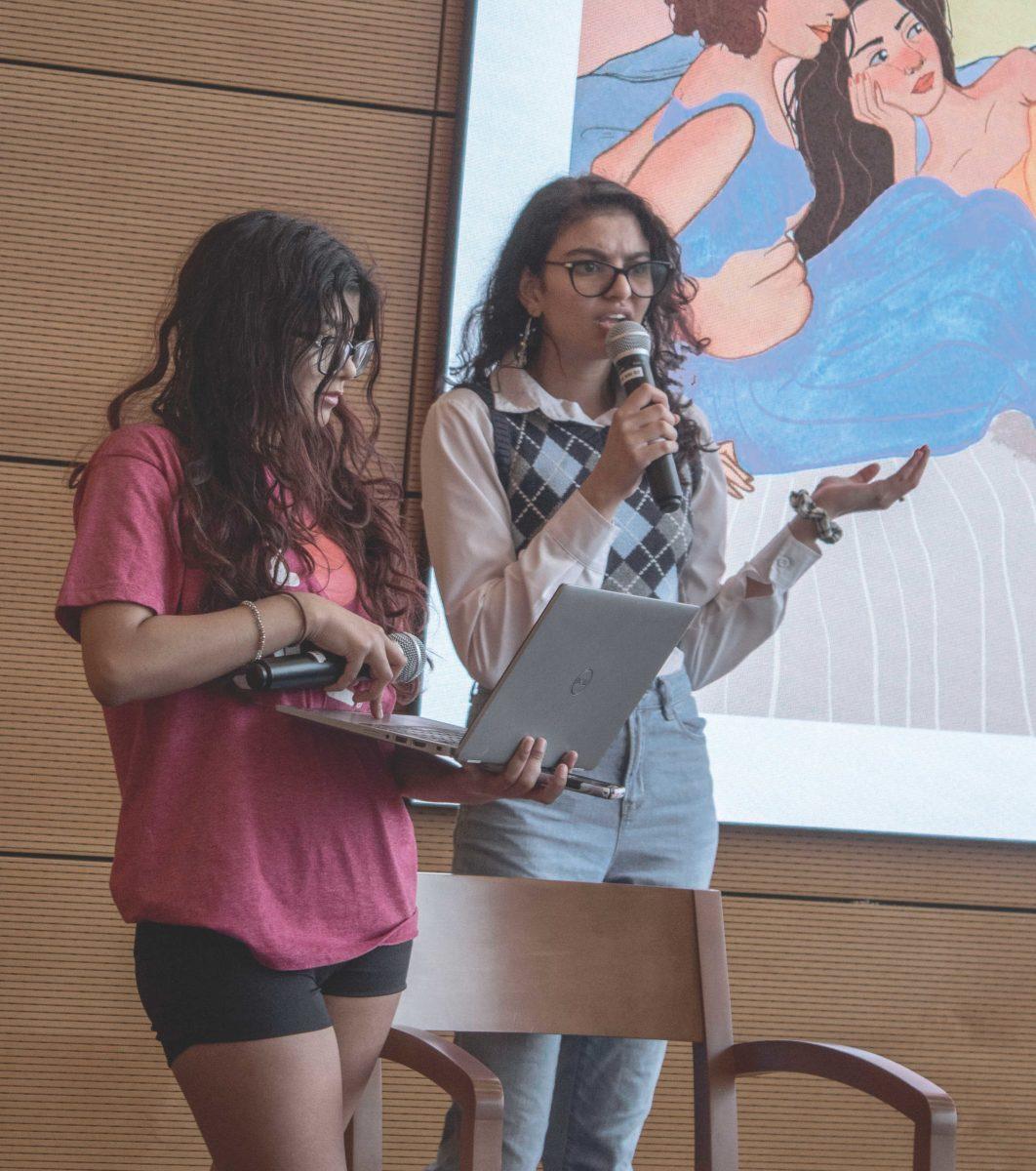UTD student activists and affiliates spoke at the Galerstein Gender Center on March 8 about change for women both in the United States and abroad.
Sophomore neuroscience major Sara Juneja, who spoke at the event, acts as the academic affairs committee chair for Student Government, which leads the menstrual absence project. Juneja is also the vice president of Advocates for Sexual Health and believes that UTD’s inclusivity is one key part in allowing women to speak with more freedom.
“I feel like UTD does a very good job of making women feel included, and that sex isn’t taboo to talk about while also having events and things like this where speakers come in,” Juneja said.
Student Counseling Center staff, Student Government senator and Advocates for Sexual Health officers all showed up to support this event as guest speakers. Poetry, trivia and food were provided in between speakers as the leaders spoke about equity for women.
Freshman economics major Sharvari Pendharkar, the social media manager for Advocates for Sexual Health, hopes events like this will bring more support for revolutionary women and more open minds.
“I think if all students came in with this mindset that ‘maybe I am not knowledgeable about this thing, but I’m willing to learn,’ [then] I feel like we could be more inclusive,” Pendharkar said. “We need to talk about it, we need to discuss it and sometimes talking and being aware can really make all the difference.”
According to the latest findings from the United States Census Bureau, in the state of Texas, there is a wage gap of approximately $10,522 between men and women amongst similar jobs with full time positions. There is a $59,156 wage gap between men and women in management positions for the same hours worked. The Census Bureau calculated that holistically, for every dollar a man makes, a woman makes 83 cents. For reference, most men in Texas occupy driving, sales, management and construction jobs in comparison to most women in Texas, who work primarily as teachers, nurses and secretaries or administrators.
In 2023, women are undergoing radical lifestyle changes across the globe despite long-standing prejudice in many cultures against women. In the U.S., lawmakers are currently pushing for total abortion bans and a ban on a common abortion pill, mifepristone, which women’s rights groups like the United Nations Working Group on Discrimination against Women and Girls argued is a violation of peace treaties and human rights laws in a 50-page anecdotal letter. The Committee on the Elimination of Discrimination against Women, or CEDAW, agrees as one of the only conventions to have a near-universal treaty for women’s rights, which the U.S. has refused to ratify as one of four against 189 states in the United Nations.
“In light of the recent decision of the United States Supreme Court in … striking down Roe v. Wade, a near half-century legal precedent that has protected women’s right to choose to have an abortion, the Committee expresses its solidarity with women and girls in the United States and resolutely urges the United States of America to adhere to the Convention,” CEDAW said in a public statement.
Others have labelled abortion bans oppressive to both women’s freedom of choice and bodily health. Yet even in a state that is associated with the pro-life movement, women find ways to empower other women through media campaigns, protests and lawsuits.
“I think politically right now in America, especially in the state that we’re in, we’re not allowing women to do what they need to with themselves and their bodies,” Juneja said.
Early women’s rights activists in New York developed the idea for International Women’s Day in 1909, which was first celebrated in Europe in 1911. It wasn’t until 1977 that the United Nations recognized International Women’s Day, and it wasn’t until 1995 that Congress recognized Women’s History Month. This year, the theme of the holiday is equity, with activists calling for fair treatment of all genders, races and abilities.





